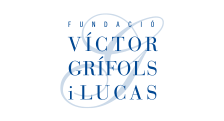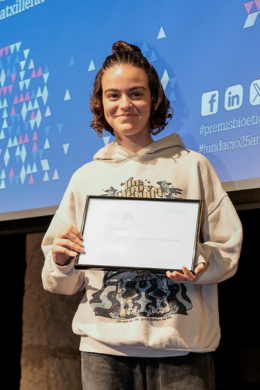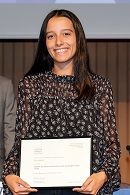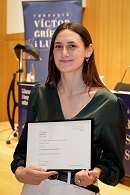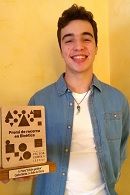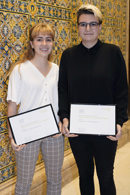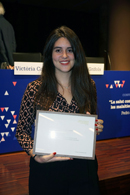Web Content Article
2024
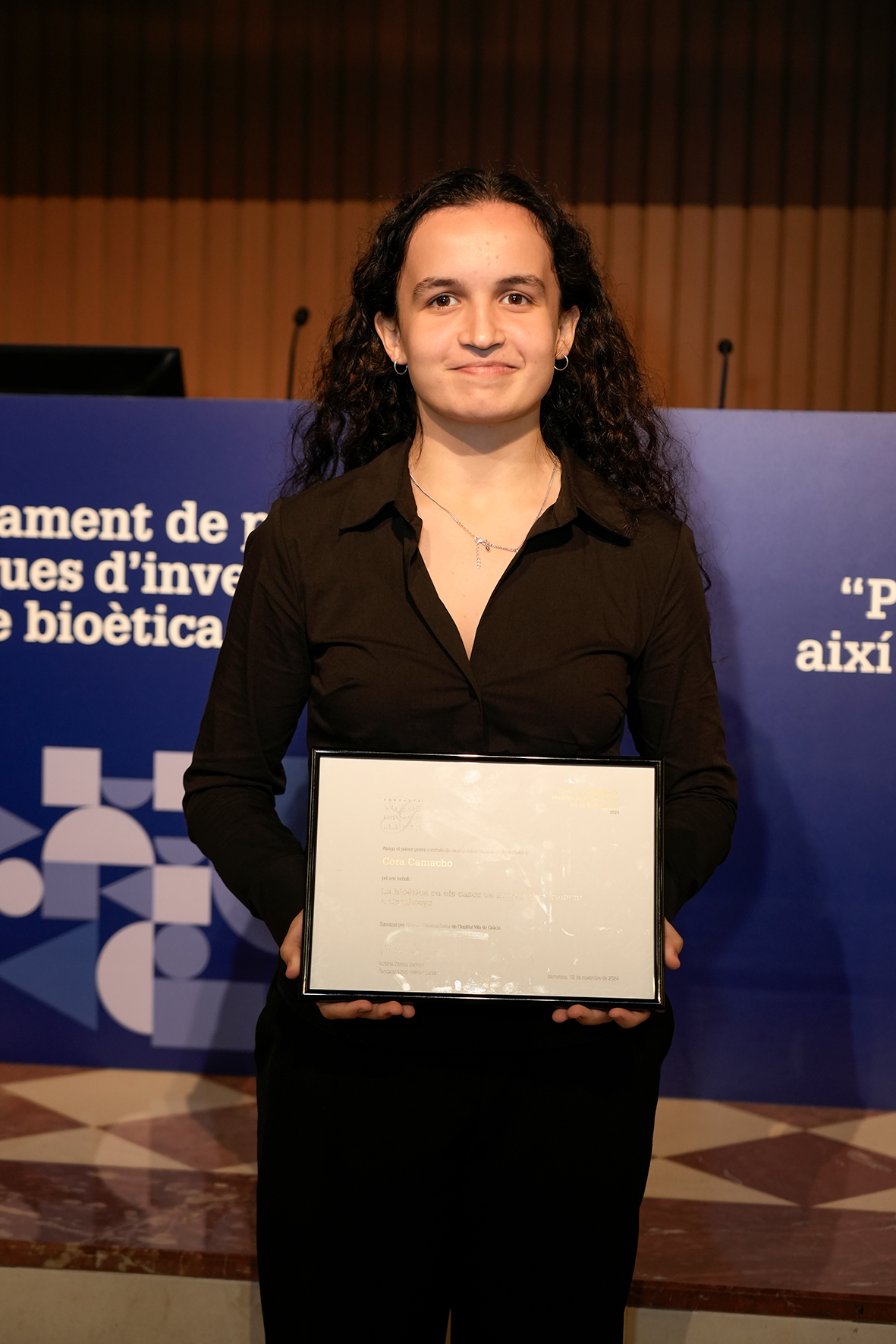
Saviour babies are conceived through assisted reproductive techniques to help treat a sibling with a chronic illness, such as leukemia. They are selected through genetic screening to ensure compatibility and to confirm they are not carriers of the disease. This research paper examines two cases of saviour babies in Catalonia, focusing on the ethical considerations surrounding these eugenic techniques and their associated procedures. The objective of this work is to reflect on the bioethical conflicts that arise in these treatments.
As existing laws are unable to fully regulate this relatively new technique, bioethical conflicts can arise. The paper offers a comparison and analysis of both cases from multiple perspectives to evaluate the ethics associated to the use of saviour siblings in Catalonia.
SECOND PRIZE
Fran Gómez, IES s'Agulla, Blanes - "Bioethics as a defensive framework for addressing emerging realities"
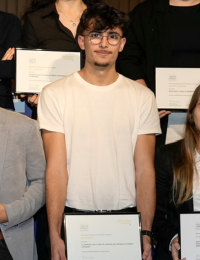
This research project argues that ethical reflection is often overlooked when integrating scientific and technological advances into society, proposing the use of the Delphi method for the effective handling of bioethical concerns. Engaging experts from diverse fields—philosophy, technology, and science—in discussion on the topic, the study authors posed a series of questions or dilemmas to each one separately, collecting their respective answers. Experts’ thoughts were compared to find similarities and differences, leading to significant conclusions.
One conclusion drawn is the need to incorporate ethical debates into education, suggesting the addition of a bioethics course to foster ethical reflection among young people. This study confirmed the working hypothesis, underscoring the importance of considering the ethical implications of scientific and technological advancements.
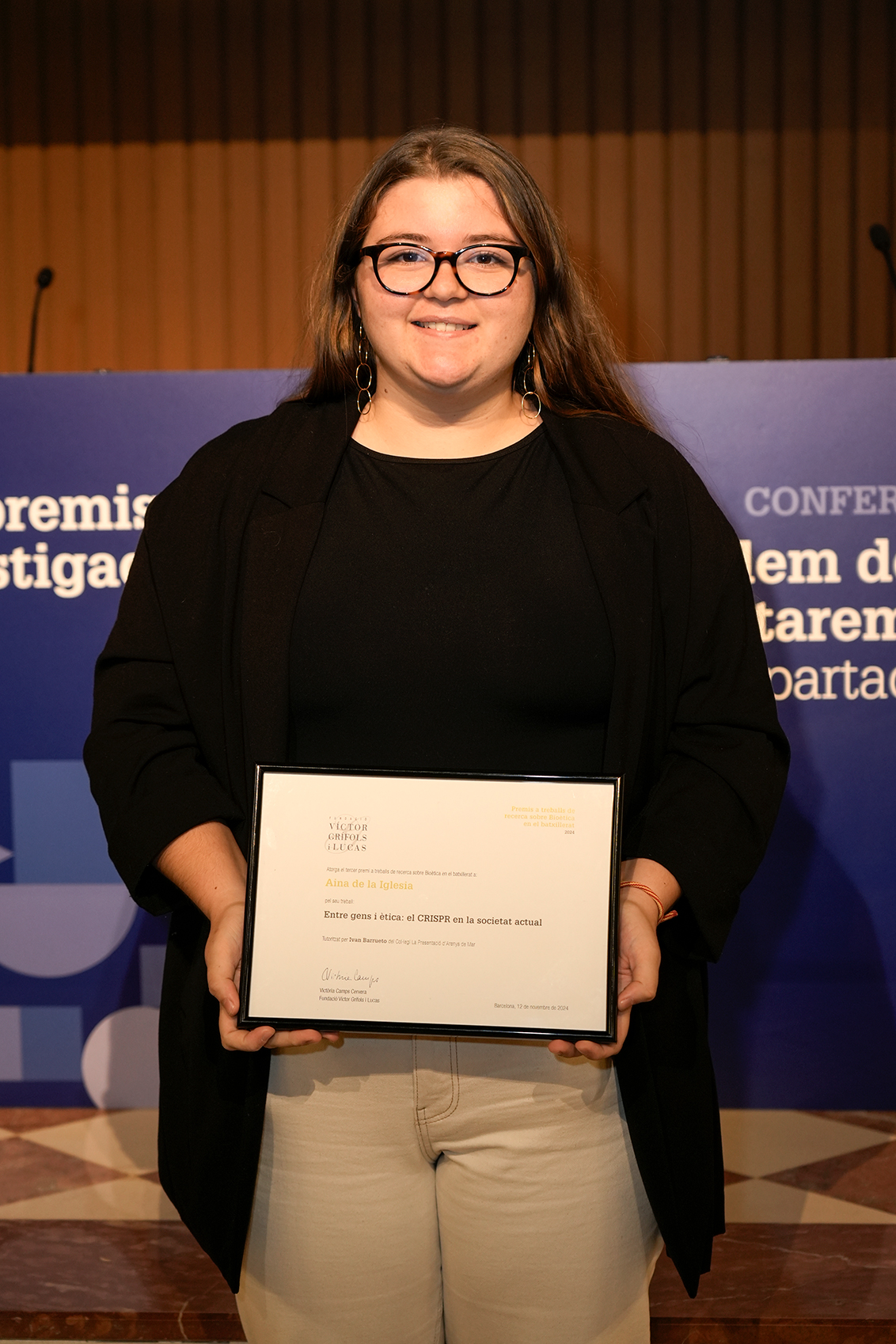
The CRISPR-Cas9 technique is notable for its versatility, precision, and efficiency in genome modification, with applications ranging from gene editing, precision medicine, food safety, and antibiotic resistance. However, challenges remain, and questions arise regarding the potential impact of these modifications on living organisms, particularly in relation to biodiversity and ecological balance.
The main objective of this work is to explore the CRISPR-Cas9 technique in greater depth, examining its molecular mechanisms, areas of application, ethical considerations, and the future outlook of this technique. Ethical considerations play a crucial role in this work, as they provide a solid foundation for the final conclusions. The conclusions were drawn from the integration of theory and ethical analysis, highlighting CRISPR applications, associated ethical issues, and future outlook of this technique.
2023
FIRST PRIZE
Júlia Fontserè for "A tocar de un mundo feliz" [Close to a Brave New World], La Salle Manlleu.
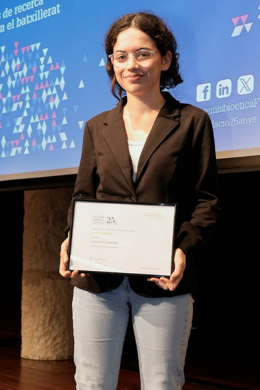
This work aims to explore the potential for society to evolve into a dystopian reality through the use of contemporary biotechnological tools. The primary goal is to provide a dystopian story centred around a key concept of transhumanism: human immortality. It takes as its point of departure a gene therapy developed at the Institute for Research in Biomedicine and draws inspiration from fiction exploring genetic-related themes, such as Aldous Huxley’s “Brave New World,” along with insights from interviews, courses, and other bibliographic sources.
The author examines the ethical limits of what is scientifically possible, and how literature can help us anticipate potential biotechnological applications and guide us in the preparation of suitable bioethical thinking for the future, whilst acknowledging that such dystopian scenarios are often be impracticable.

This work aims to highlight the importance of ethics in medical practice, given the multitude of situations that health professionals encounter on a daily basis. Despite being an undeniable reality, ethics holds a minimal presence in university degrees in Medicine, often accounting for only 3 or 4 credits out of the total 360 in the curriculum. Therefore, the purpose of this study is to highlight the need for enhanced ethics education within university medical programmes across Catalonia.
The study authors analyse the situation through interviews with national and international experts, comparing curricula from other countries with that of Catalonia, and presenting paradigmatic ethical cases within each branch of study to illustrate the cross-disciplinary nature of such conflicts. One of the final project results involves the creation of a magazine containing the ethical considerations involved in each case with the purpose of serving as an educational tool.
2022
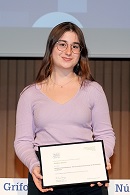
The aim of this work is to demonstrate how emerging technology and artificial intelligence (AI) in particular, becomes a very useful tool in the diagnoses of a variety of diseases such as cancer. Using a theoretical framework based on the definition of AI, the impact of this technology on human life is evaluated, as well as its applications in the medical field and the risks it entails.
The project also includes a practical portion that makes use of a machine learning algorithm. Its aim is to help predict breast cancer using collected data. This algorithm was able to detect breast cancer in patients with a reliability of 95%, demonstrating the importance of early detection of this disease.
THIRD PRIZE
Ovidi Mallafré of the Anna Gironella de Mundet Secondary School for “Bioethics and dying with dignity”.
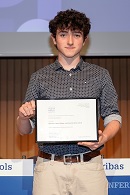
This project’s research work was conducted in three parts. The first consists of a literature review to establish a definition of euthanasia and the concepts referred to throughout the project itself. It also surveys changes in this legislation and the history of euthanasia. The second portion consists of field work consisting of three interviews with figures directly connected to the euthanasia field, and a survey gathering the opinions of young people. Taken together, this information offers a snapshot of the diverse opinions on this topic. In the last portion of the project, a proposal for evaluation criteria is offered by the author drawing from the information gleaned from parts one and two.
2021
Second Prize
Íngrid Jané Curtu, Escola Ginebró, Llinars del Vallès, for "Wombs for hire: The commercialization of women's bodies"
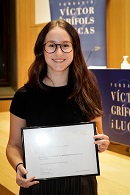
The purpose of this project is to explain what surrogate pregnancy entails, who is involved in it, how much it costs and where it is permitted, in order to analyse the principal ethical and legal controversies associated with it. The project also argues that there is a link between this business and the patriarchal society in which we live.
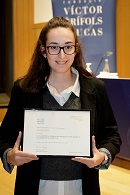
This research project starts by defining the meaning and history of the term "bioethics", and then delineates the concept of "ethical conflict" as the basis for analysing the experiences of health staff working in ICUs during the Covid-19 pandemic, in the context of shortages of both staff and resources.
2020

Female genital mutilation continues to be a reality among the Masai people of Tanzania, and this project seeks to study why this practice persists, given how dangerous it is and the high probability of death as a result of the lack of resources that could reduce the risk of harm. It also aims to raise awareness of this practice in our society, to help women who suffer from it.
THIRD PRIZE
Bet Corominas, student at Escola Pia, Mataró, for "The diseases of poverty: beyond a health problem"
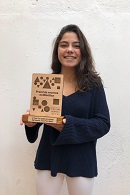
This project aims to identity the diseases of poverty, their characteristics, and the current situation, analyzing the issues with reference to politics and the pharmaceutical industry, and also the importance of drinking water for human life. The project also aims to create a website to share the research, and to provide information to anyone who is interested in these diseases.
2019
FIRST PRIZE
Anna Carbó Bel de l'Institut Dertosa de Tortosa per "Dignified medicine, dignified death"
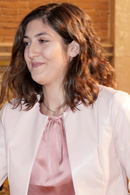
This project considers the topic of dignified death in hospitals, exploring the attitudes of health staff towards patients with terminal conditions. Its aim is to identify how health professionals manage their patients' death, and how they accompany them on this journey, offering as much comfort as possible. This shows that medicine is limited not only by scientific progress but also by ethical principles.
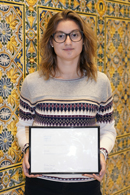
This project analyzes the ethical implications of our relationship with other animals when our actions may cause unnecessary suffering, stress or pain. The aim is to highlight certain practices that are deeply rooted in our culture and involve the mistreatment of animals, with the objective of raising social awareness.
2018
FIRST PRIZE
Marta Vecino, lnstitut Ribera Baixa del Prat del Llobregat, for "Science and Bioethics in Fiction"

2017
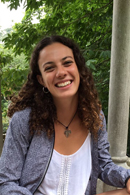
This project seeks to identify the progress made by studies that investigate prolonging human life, and considers whether such achievements are really possible. It also looks at how fear of death and a desire for immortality are deeply rooted in human culture, as demonstrated by a study of three works of art. Finally, it makes a personal bioethical proposal, analyzing a range of different responses to scientific and technological progress.
SECOND PRIZE
Sara Clota, Instituto Canigó de Almacelles, for "Bioethics and care homes for the elderly"
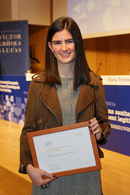
Her project seeks to confirm or disprove the following hypothesis: "Bioethics is seen as a complicated discipline, which is the reserve of those occupying senior professional positions, and generally ignores the existence of ethical problems in settings of direct care, and in particular in care homes. when it comes to resolving such problems, a series of values and principles are more important than medical diagnosis."

The main objective of this project is to identify whether it is really ethical and legal to have a ‘medicine baby' so that it can be a donor for its ill sibling. The fact that the baby is not conscious and cannot give its consent for the use of its cells requires us to ask to what degree this is an ethical method and at what point it ceases to be so. Secondary objectives are to identify public opinion on this issue, and to find out about the bone marrow transplant process.
2016


SECOND PRIZE
Elena Cortina Sugrañes of Escuela Puigcerver for "Paul and ‘the Tree of Memories'. Bioethics and death".

This study starts by considering the meaning of ethics and bioethics, and their application to medical care. It then goes on to analyze the concept of death, its causes and how children cope with it. Next, it discusses euthanasia, its application in different countries, and the role of living wills or advance directives documents (ADD). Finally, the study includes a practical section consisting of an activity on bioethics for secondary pupils and an activity for use in the discussing the topic of death with primary pupils.
The author of this study has designed and constructed a device that functions as a swinging seat and as a "crawler" for children aged four with multiple disabilities. The device enables the children and their teachers to have fun and to take a break from conventional chairs, and it facilitates the basic activity of crawling, something that children with multiple functional disabilities are often unable to do. The study also considers what multiple disability is, its causes and the health problems associated with it, the educational needs of children with multiple disability and, finally, the design and construction of the "Crawl & Roll" device.
2015
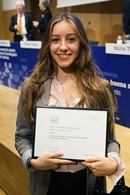
In her analysis of eugenics, the author seeks to understand and evaluate, from a bioethical perspective, the opportunities currently provided by this practice, how it should best be applied, and how to assess the risk of discrimination. Methods used include a literature search to identify the historical background of eugenics, surveys to identify the opinions of civil society, and an interview with an expert in this area.
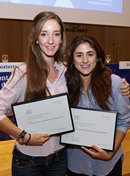
This essay analyzes the situation of people who cannot be clearly assigned to either gender (male or female). The authors seek to define the concept of intersexuality, to analyze the resources that bioethics offers for tackling the dilemmas that arise in these situations, and to identify the perspectives of the various professionals involved (pediatricians, gynecologists, anthropologists, experts in bioethics, etc.).
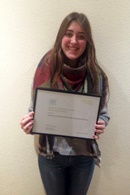
This essay argues that the use of stem cells from umbilical cord blood is a business that is based on weighing the potential medical benefits for patients against the economic benefits for the company. The author interviewed all the Catalan hospitals with neonatal units, enabling them to analyze the differences between public and private institutions. The essay also provides a historical, scientific, legal and ethical perspective on the issue, enabling readers to form their own opinion in this regard.
2014
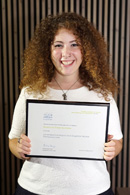
This project analyzes the Pre-implantation Genetic Diagnosis from different perspectives, by offering ethical, legislative and technical (the procedure and the techniques used) viewpoints. The author has used a wide range of methods such as interviews, public surveys and various other documental sources, among others.

"A 180 degree turn" is written in the first person and relates the story of the author who has lived through the experience of cancer, more specifically Hodgkin's lymphoma, and the feelings that arise when suffering from this disease. The project is the story of survival, of learning not to give up and to keep on fighting.
THIRD PRIZE
Eloi Güell, of Castelló d'Empúries Institute for the project "El futur de la naturalesa humana".
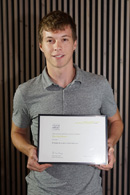
"The future of the human nature" focuses on eugenics, or on the "improvement" of the human species. This topic is progressively gathering importance, due to the progress made in science and technology and due to the serious moral dilemmas that are beginning to arise as a consequence.
2013
The project defines the ethical framework or guidelines used by doctors (or by officials or judges, who have to intervene as third parties when medical opinion or the criteria of the healthcare Ethical Committee is insufficient), in cases that involve blood transfusions.
This study is an example of the convergence of science and philosophy through the analysis of how ethics apply in palliative care and in the treatment of the terminally ill. The project also aims to provide evidence that the essence of medicine, and in general any activity, has to be based on ethics and on responsibility.
THIRD POSITION
Gemma Cardona i Mercè Gil, of Les Marines Institute in Castelldefels, for the project "Bioethics: Euthanasia"
This project focuses on the subject of euthanasia, which is currently an important matter of debate in many countries and which has concerned individuals involved in health related professions for many centuries. This study addresses the subject from three perspectives in relation to different disciplines: philosophy, medicine (or more generally, science) and from a legal standpoint.
